Chewable Tablets 25 mg for Dogs: Complete Guide to Dosage, Indications, and Pain Relief
Pain management is a critical component of veterinary care, especially for dogs suffering from arthritis, degenerative joint disease, post-surgical pain, or musculoskeletal injuries. One of the most trusted medications in canine pain relief is Carodyl Savavet—a veterinary-grade NSAID (non-steroidal anti-inflammatory drug) formulated specifically for dogs.
This in-depth blog explores everything dog owners and veterinarians need to know about Carodyl Savavet—from therapeutic indications and mechanism of action to dosage guidelines, side effects, and clinical research. Whether you’re considering it for chronic arthritis or post-operative care, this guide will help you make informed decisions for your dog’s well-being.
What is Chewable Tablets 25 mg ?
Chewable Tablets 25 mg is a veterinary NSAID that contains Carprofen as its active ingredient. It is used for the control of pain and inflammation associated with osteoarthritis, hip dysplasia, postoperative recovery, and soft tissue injuries.
Carodyl belongs to the propionic acid group of NSAIDs and is chemically related to ibuprofen but is specially designed for safe use in dogs. Unlike human NSAIDs, Carodyl is formulated to minimize gastrointestinal side effects and optimize joint support in dogs.
Composition
Each Carodyl Savavet tablet contains:
- Carprofen: 25 mg, 50 mg, or 100 mg
- Excipients: Palatable base, stabilizers, binders
Carodyl is available in scored tablets to allow for accurate dosing based on your dog’s body weight.
Indications for Use
1. Osteoarthritis
- Degenerative joint disease in older dogs.
- Improves mobility, reduces stiffness, and restores quality of life.
2. Postoperative Pain
- Used after orthopedic surgeries (fracture repair, ACL surgery).
- Controls inflammation and promotes faster recovery.
3. Soft Tissue Injuries
- Muscle sprains, ligament tears, or trauma-related injuries.
- Provides rapid anti-inflammatory effects and pain relief.
4. Geriatric Support
- Senior dogs often suffer from chronic joint pain.
- Carodyl offers long-term comfort and improves daily activity levels.
Mechanism of Action
Carprofen works by inhibiting cyclooxygenase (COX) enzymes, particularly COX-2, which is involved in the inflammatory process.
- COX-2 selective inhibition: Less risk of gastrointestinal ulceration compared to non-selective NSAIDs.
- Analgesic + Anti-inflammatory + Antipyretic
How to Administer Carodyl Savavet to Dogs
Accurate dosing of Carodyl Savavet (Carprofen) is essential to ensure your dog experiences effective pain relief with minimal risk of side effects. Carodyl is available in chewable tablet form in three strengths — 25 mg, 50 mg, and 100 mg — allowing for precise weight-based dosing.
Recommended Daily Dose
- Alternatively, this dose can be split into two equal doses (2.2 mg/kg twice daily) if preferred by the veterinarian or based on the dog’s condition.
Dosage (Based on Body Weight)
| Dog’s Body Weight | Daily Dose (4.4 mg/kg) | Carodyl 25 mg | Carodyl 50 mg | Carodyl 100 mg |
| 2.5 – 5 kg | 11 – 22 mg | 0.5 – 1 tab | — | — |
| 5 – 10 kg | 22 – 44 mg | 1 – 2 tabs | 0.5 – 1 tab | — |
| 10 – 20 kg | 44 – 88 mg | 2 – 4 tabs | 1 – 2 tabs | 0.5 – 1 tab |
| 20 – 30 kg | 88 – 132 mg | 4 – 5.5 tabs | 2 – 2.5 tabs | 1 – 1.25 tabs |
| 30 – 40 kg | 132 – 176 mg | 5.5 – 7 tabs | 2.5 – 3.5 tabs | 1.25 – 1.75 tabs |
| 40 – 50 kg | 176 – 220 mg | 7 – 9 tabs | 3.5 – 4.5 tabs | 1.75 – 2.25 tabs |
Note: Always consult your veterinarian for the exact dose and duration tailored to your dog’s condition.
Frequency and Duration
- Once-daily dosing is typically effective for most conditions.
- Divided twice-daily dosing (2.2 mg/kg every 12 hours) may be beneficial for dogs with severe pain or post-operative inflammation.
- Duration of use:
- Short-term: 3–7 days for injuries or post-surgical recovery
- Long-term: Weeks to months for arthritis, with periodic monitoring
How to Administer
- Form: Flavored chewable tablets (often meat-flavored for easier acceptance)
- With food: Give the tablet with or immediately after food to reduce the risk of GI upset.
Adjustments to Dosage
Your vet may recommend:
- Extended loading dose for acute conditions
- Reduced frequency for long-term management
Veterinary Monitoring
For dogs on long-term Carodyl:
- Baseline bloodwork before starting
- Liver and kidney function tests every 8–12 weeks
- Monitoring for vomiting, diarrhea, black stools, or changes in appetite/behavior
Tips for Pet Owners
- Use pill reminders or dosing apps to stay on schedule.
- Give with a small meal or treat for better tolerance.
- Keep a log of your dog’s activity, appetite, and mood to monitor effectiveness.
Adverse Effects and Veterinary Safety of Carodyl Savavet for Dogs
Chewable Tablets 25 mg (Carprofen) is generally well-tolerated by dogs when administered at the recommended dosage. It is widely used in veterinary practice due to its selective COX-2 inhibition, which helps control inflammation with a lower risk of gastrointestinal side effects compared to non-selective NSAIDs. However, as with all medications, certain precautions should be observed.
General Safety Overview
- Species-Specific: Carodyl is formulated specifically for dogs only and should never be used in cats.
- Palatable and easy to administer: Most dogs accept it well in tablet form.
- Veterinary-monitored use is essential, especially during long-term therapy.
Common Side Effects
- Vomiting
- Diarrhea
- Lethargy
- Loss of appetite
Rare but Serious Effects
- GI ulceration or bleeding
- Kidney or liver dysfunction
- Yellowing of the eyes/gums (sign of liver trouble)
When Not to Use Carodyl
Avoid or use with extreme caution in the following scenarios:
- Pre-existing liver or kidney disease
- Gastrointestinal ulcers or bleeding
- Pregnant or lactating bitches
- Concurrent use with other NSAIDs or corticosteroids
- Cats (Carprofen is not safe for feline use)
Drug Interactions
| Drug Type | Interaction Risk | Comment |
| Other NSAIDs (e.g., meloxicam) | High (risk of GI bleeding) | Avoid concurrent use. |
| Corticosteroids (e.g., prednisolone) | High (risk of ulcers and renal injury) | Do not use together. |
| Diuretics (e.g., furosemide) | Moderate (may worsen kidney effects) | Monitor kidney function closely. |
| ACE Inhibitors (e.g., enalapril) | Low–Moderate | Possible reduction in antihypertensive effect. |
Monitoring During Long-Term Use
If Carodyl is used for more than 2–3 weeks, regular bloodwork is essential to monitor for:
- Liver enzymes (ALT, AST)
- Kidney markers (BUN, creatinine)
- Signs of GI upset
Suggested Monitoring Schedule:
- Baseline bloodwork before starting
- Follow-up every 8–12 weeks during continuous use
Safety Tips for Owners
- Always administer with or after meals to reduce GI irritation.
- Provide fresh water at all times.
- Never double dose if a dose is missed.
- Dispose of expired medication properly.
Veterinarian Insight
“Chewable Tablets 25 mg is among the safest NSAIDs we use in dogs today, but owners should always follow dosing guidelines and schedule regular checkups for long-term use. Its benefits for arthritis and post-op recovery are undeniable, but early detection of adverse effects ensures safety.”
– Dr. R. Kaushik, Veterinary Orthopedic Specialist
Veterinary Research Backing Carodyl Savavet Use in Dogs
Carodyl Savavet, containing the active ingredient Carprofen, is supported by a wealth of clinical data and has been extensively researched for its efficacy in managing canine osteoarthritis, postoperative pain, and musculoskeletal disorders. It is one of the most studied veterinary NSAIDs, with data spanning over two decades of clinical use.
Key Research Findings
1. Carprofen in Canine Osteoarthritis
A pivotal study published in the Journal of the American Veterinary Medical Association (JAVMA) demonstrated significant improvements in dogs with osteoarthritis treated with Carprofen.
- Study Design: Randomized, placebo-controlled
- Duration: 14 days
- Results:
- 70% of dogs treated with Carprofen showed notable improvement in mobility.
- Marked reduction in pain during physical manipulation of affected joints.
- Pet owners reported significant improvement in activity levels and comfort.
2. Post-Surgical Pain Management
A multicenter trial assessed the use of Carprofen in dogs undergoing orthopedic and soft-tissue surgeries.
- Findings:
- Carprofen was as effective as opioids in managing postoperative pain.
- Dogs exhibited fewer side effects, faster return to normal activity, and better tolerance.
- It provided better pain control in the first 48 hours post-op when compared to tramadol and meloxicam.
Owner-Reported Outcomes
In long-term use studies:
- Over 85% of owners reported improved quality of life in dogs receiving Carprofen for over 6 months.
- Dogs showed enhanced mobility, reduced lameness, and a return to normal behavior.
Comparative Studies
Carprofen vs. Meloxicam
- Both are effective, but Carprofen is often better tolerated in dogs with sensitive GI tracts.
Carprofen vs. Steroids
- NSAIDs like Carodyl are preferred over corticosteroids for long-term use due to fewer side effects (e.g., no immune suppression or increased thirst/urination).
- Better pain control in chronic joint conditions.
Long-Term Efficacy
Veterinary case studies have documented:
- Sustained pain relief over 12+ months of daily dosing.
- Maintained mobility and reduced reliance on additional pain medications.
- Use in conjunction with joint supplements (e.g., glucosamine) shows synergistic improvement.
Clinical Best Practices
- Carodyl is often part of a multi-modal approach that includes:
- Controlled exercise
- Weight management
- Physiotherapy
- Nutraceuticals like omega-3s or chondroitin
Veterinarians recommend reassessing the patient every 3 months to ensure continued efficacy and safety.
Conclusion
Chewable Tablets 25 mg is a veterinarian-trusted NSAID that provides safe, effective relief from inflammation and pain in dogs suffering from arthritis, injuries, or recovering from surgery. With its well-established safety profile, targeted action, and proven clinical efficacy, Carodyl is an essential part of modern veterinary pain management.For pet parents and vets alike, Carodyl represents a reliable, long-term solution to improving canine mobility, comfort, and quality of life. Whether your dog is slowing down due to age or recovering from surgery, Carodyl can help them return to an active and happy life.







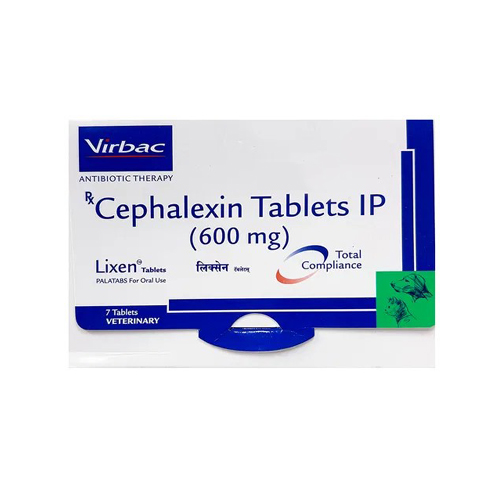
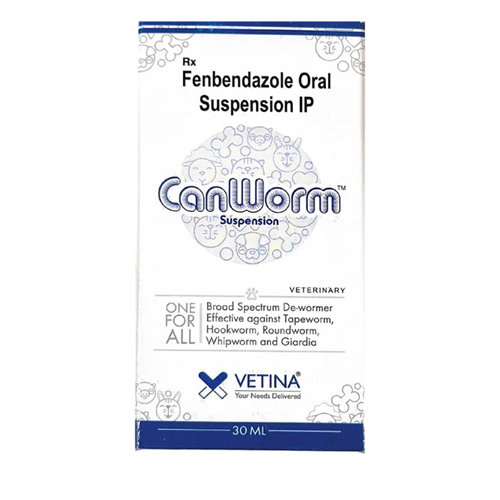



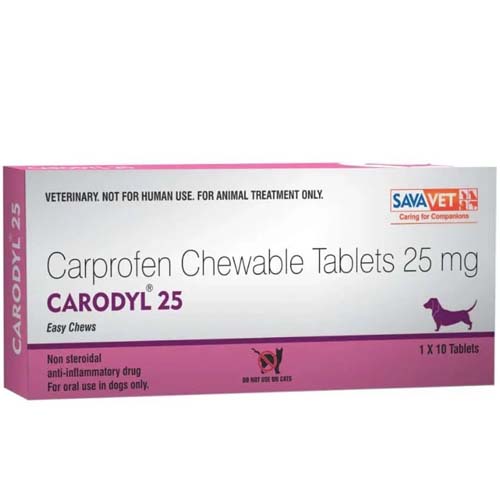
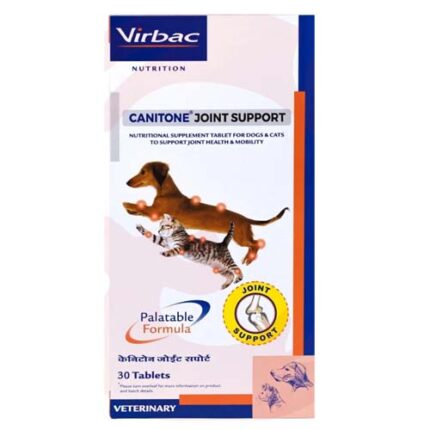
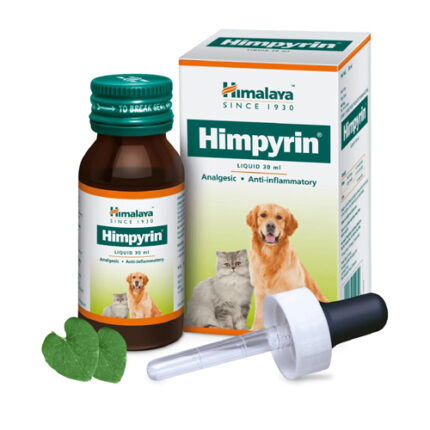
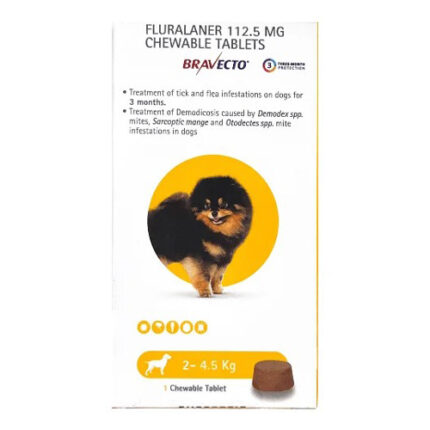
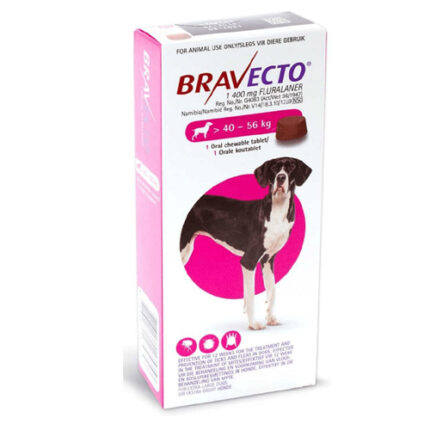
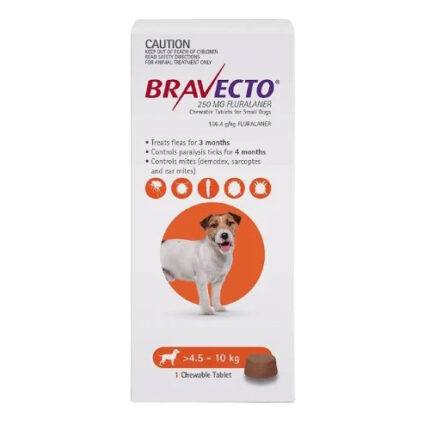
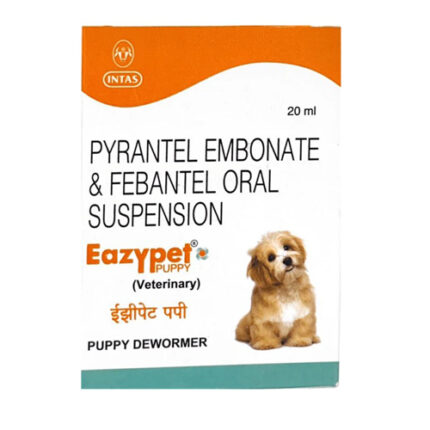
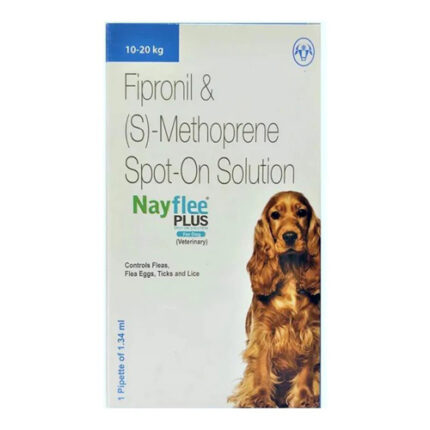
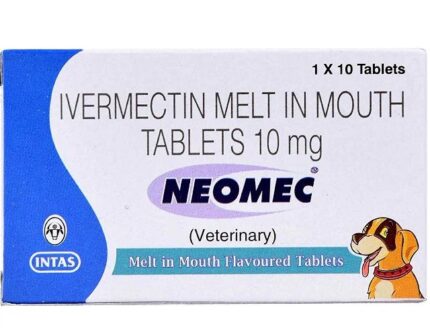
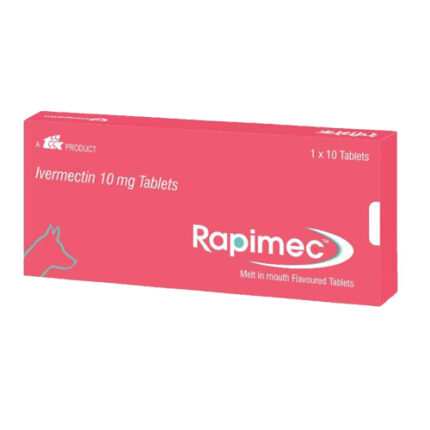
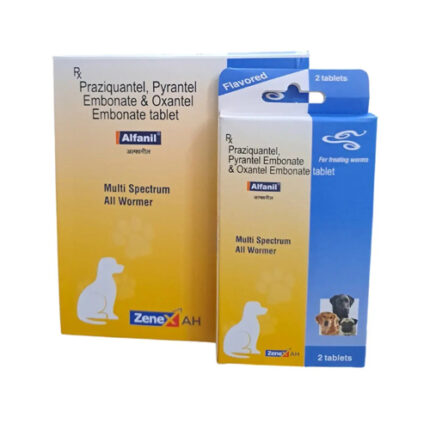
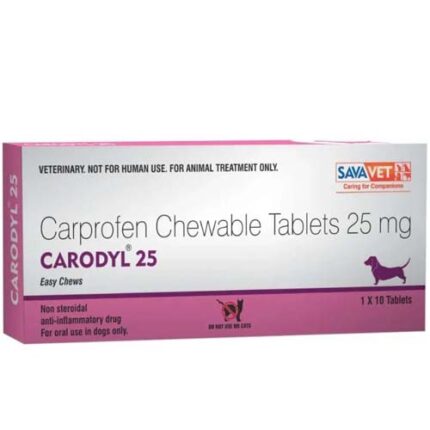
Reviews
There are no reviews yet.